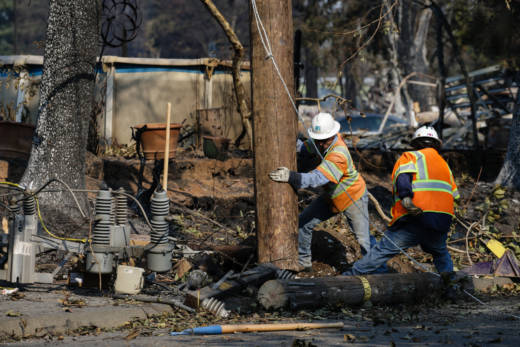It would be harder, but not impossible, for private property owners to collect damages from utility companies that unintentionally cause fires in California, under a long-awaited proposal unveiled by Gov. Jerry Brown Tuesday.
Brown's proposal comes on the eve of the inaugural meeting of a joint legislative committee tasked with coming up with a plan to make California more resilient when dealing with wildfires, which have become increasingly destructive in recent years.
It also comes after months of lobbying by utility companies as they seek to protect themselves from potentially huge financial liabilities from recent wildfires.
Brown's proposal doesn't go as far as utilities had asked. It doesn't entirely eliminate a California law known as inverse condemnation, which lets courts hold utilities financially liable for damage their equipment causes, even if they followed state safety and maintenance rules.
But Brown does want to give courts more flexibility in deciding whether to hold a utility financially liable for damage -- a change that could make it harder for fire victims to collect money in cases where a utility's equipment caused a fire but the company didn't act negligently.
